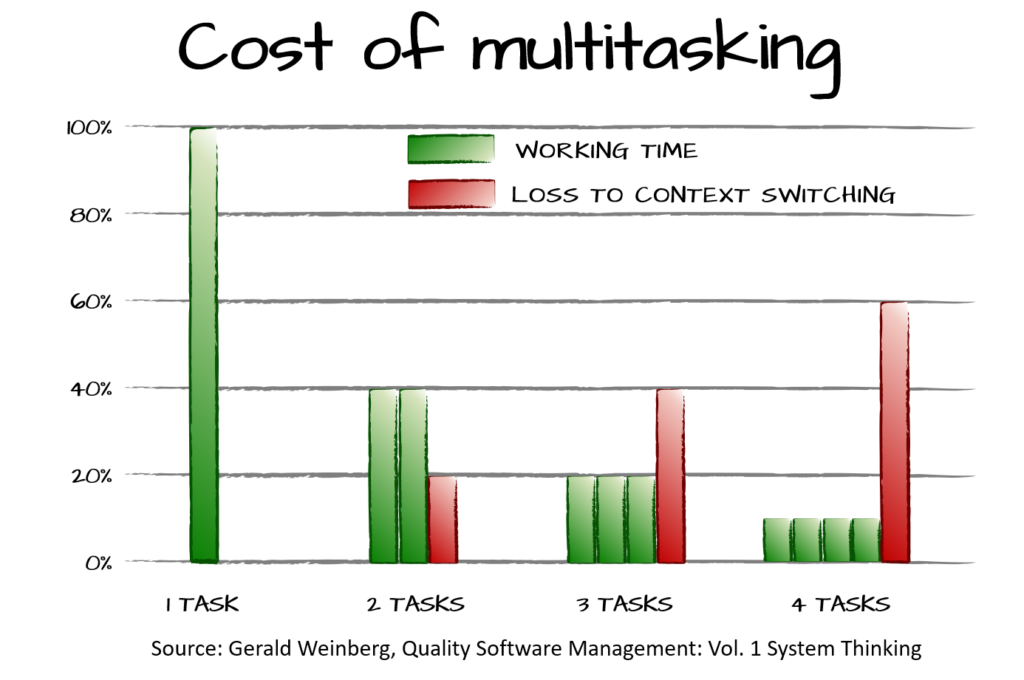Over the past decade, the idea of wholeness—to bring the whole self to work—got quite some traction. The sources are many. It rides on the wave of increasing acceptance of individualism. It appears to align with diversity, which has become a major topic across HR departments.
Last but not least, it’s one of the pillars of Teal Organizations. Teal might be far from a household name that Fredrick Laloux, who coined the term, envisioned a dozen years back. However, it successfully grabbed the wider attention of many forward-looking companies (for better or worse).
Why Wholeness?
Laloux’s argument for wholeness is straightforward. He juxtaposes the old-school bringing our professional, ego-driven, masculine, rational selves to work with getting access to emotional, intuitive, and even spiritual resources. The latter, he argues, is not a simple upgrade. It’s a whole different game.
This is not mathematical, but it is only 1/16 (of us) that’s showing up. When that is the case, we also show up with 1/16 of our energy, of our passion, of our creativity.
Frederic Laloux
One could easily envision the yields we’d gain if only we could access 10x as much creativity pool as we can now.
Then, for many of us, it’s only a humanistic reaction. We might think of ourselves as tolerant, welcoming, inclusive people (I know I do), and accepting others’ whole selves seems like a natural consequence of that view.
I didn’t need much more convincing to get on board and push the wholeness agenda at Lunar Logic.
Truly Whole Selves
Fast forward several years, and I was trying to understand what went wrong. I was looking at a workplace equivalent of a tribal war.
People hurt each other. In extreme cases, they even refused to work together as a team.
While it didn’t happen out of the blue, and circumstances added a lot to the mess, none of that would have occurred without years of fostering wholeness.
You see, no matter how we don’t like that thought, our whole selves are not all roses. We carry our dark passengers within us. We view the world around us through the lens of our biases and our prejudices. We can’t leave that dark guy at home. It doesn’t work this way.
If we let him out, we act out. That’s when we start hurting others. The worst part, we don’t even notice.
The Case in Point
A few years back, environmental activists from Extinction Rebellion stopped commuter trains to London by climbing on top of them. It made the news back then, including the social media wave of comments.
It was interesting to see how people I knew sided with either the protesters or the commuters. Interesting enough to watch the footage of the events.
If you’ve just watched the video, you might have had more sympathy and understanding for either side of the conflict.
Make an experiment. Pretend you know nothing about environmental activists and their agenda. Pretend you don’t understand the anger of the crowd. Rewatch the video.
What do you see?
See the man on top of the train trying to kick a person climbing the train in the head. Notice the crowd pulling the man down on the platform and kicking him. At its most basic level, what you see is people physically hurting others.
These are people who bring their whole selves to the scene.
Intentions Matter
– But Pawel, clearly, we can’t ignore actors’ intentions before judging their actions!
– Fine, be my guest.
The protesters’ agenda is clear. They aim to raise awareness of the ecological crisis that humankind is engineering for itself. The commuters? They want to sustain themselves and their loved ones. For some, the delay may just be an annoyance, but for others, it may trigger serious financial consequences.
Their intentions are clear and pure.
I bet no one came to the platform with the intention to hurt another human being physically. Not a single person.
And yet, here we are. We want it or not, wholeness includes our dark passengers. What follows is that, when unbounded, it brings harm. Probably, more harm than good.
Bounded Wholeness
So, what was the grand finale of our tribal war? We lost 20% of the people who mentioned the situation as the primary trigger for their decisions to move on.
We found an expert to help us organize rules and norms around non-discrimination and inclusion. A big part was learning what is and is not safe for work.
It seems a hell lot of things are not safe for work. In other words, if we want to be inclusive and non-discriminatory, we must limit ourselves.
It’s anything but wholeness.
Well, you could call it bounded wholeness. However, it’s akin to bounded freedom, which essentially is not true freedom.
– But Pawel, freedom is limited, too. You can’t do anything. Your freedom ends when you start violating someone else’s freedom.
– Sure, the lines are blurry at best. But if you want to avoid people hurting others, they need to constrain their wholeness a lot. And I mean, a lot.
Respect as Guidance
Before the whole thing happened at Lunar, I believed it would be enough to follow a simple rule of thumb. Something that would tell us to respect one another.
Make sure people give more consideration to others than they demand for themselves. It is more inconsiderate to prevent people from exercising their rights because you are offended by them than it is for them to do whatever it is what offends you. That said, it is inconsiderate not to weigh the impact of one’s actions on others, so we expect people to use sensible judgment and not doing obviously offensive things.
Ray Dalio
Or, as my favorite conference puts it in their code of conduct: “Don’t be a jerk, be excellent to each other.”
The harsh lesson, though, is that it leaves too much space for interpretation. The closer we are to someone, the easier it is to empathize with them. As a result, the generic guidance will work for folks within our ingroup but not necessarily for those outside of it.
The more different the outgroup from my circle, the harder it is to give them “more consideration” than I expect for myself. It’s even worse when we consider groups polarized against each other. Think modern politics.
Suddenly, almost everything may theoretically offend someone.
Clear Boundaries
That’s why we need very clear boundaries. When my behavior is within those boundaries, I shall feel safe. Even if someone feels hurt, I am free to ignore it, and the other person has to get over it.
However, when I violate the boundaries, the opposite is true. The other person has every right to expect me to stop doing whatever I’m doing, no matter whether or not I think it should be OK.
As a team or an organization, we can negotiate these boundaries. We can bring them as far as we collectively agree upon. However, with a diverse team, we will necessarily constrain acceptable behaviors quite heavily.
It’s not ideal. We still agree that some more sensitive individuals may feel hurt every now and then. That’s the price we pay for “unfreezing” everyone else.
Otherwise, we’d be petrified that something we do may hypothetically harm somebody.
Conclusion
Wholeness, sold to us as “let’s freely bring more of ourselves to a professional context,” is a lie. As appealing as it sounds, it overlooks a critical part. While focusing on the upside, it entirely ignores the risks.
I know it’s a hard pill to swallow, but in this case, the potential downside is more significant than the gains we get.
If we reverse engineer the whole process and start with building a (relatively) safe work environment, we won’t end up with wholeness. At least not the kind we were sold in the first place.
If I’ve succeeded in getting you interested, here’s a video that covers the topic in more depth. A fair warning, though. There might be triggering content inside.



